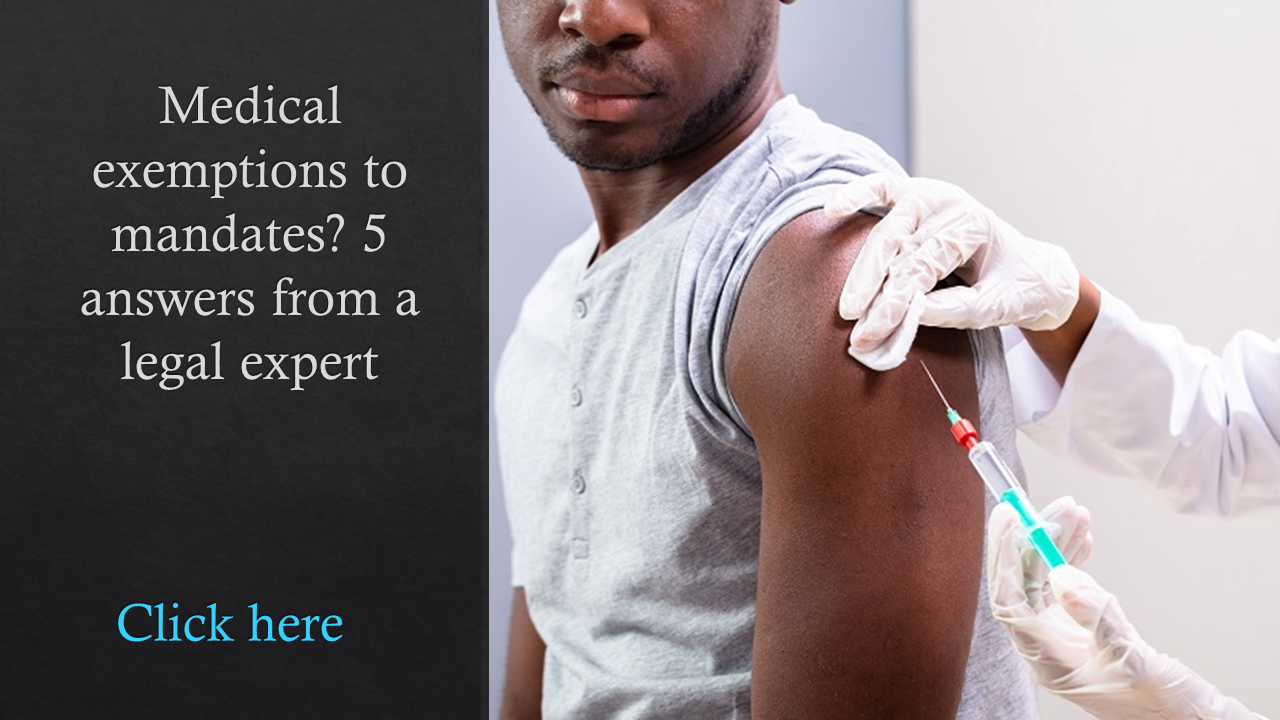A federal appeals court over the weekend temporarily halted the Biden administration’s vaccine requirements for employers with 100 or more workers, evidence that the administration’s goal to have employers help boost COVID-19 vaccination rates may face an uphill battle. The ruling from the United States Court of Appeals for the Fifth Circuit–which cited “grave statutory and constitutional” issues with the mandate–comes after numerous Republican-led states filed legal challenges against the new rule, which is set to take effect Jan. 4.
The stay puts in question the future of Biden’s vaccine rule, prompting employer confusion as well. Legal and health analysts say that, despite the temporary stay to the mandate, employers should work toward compliance, preparing for the rule as if legal challenges won’t change the outcome.
“Employers covered under the ETS [emergency temporary standards] should nonetheless proceed with taking the steps necessary to comply with the ETS’ various requirements,” says Melissa Gonzalez Boyce, an attorney and legal editor at XpertHR. The first compliance deadline is Dec. 5–only a few weeks away, she notes. By then, employers must implement a vaccination or vaccination/testing policy, determine each employee’s vaccination status and roll out a PTO policy for vaccinations. “These measures will take time and effort, so employers should be prudent and prepare as if the ETS will be enforced.”
Dr. Jeff Levin-Scherz, population health leader at Willis Towers Watson, adds that it’s likely the court challenges will take a number of weeks to be resolved, and “employers should continue their preparation for compliance in case the emergency temporary standard is allowed to proceed.”

“This includes developing the infrastructure and policies and procedures to address requests for medical or religious exemptions in a compliant and nondiscriminatory manner and deciding whether to offer testing as an option to vaccination and setting up the vendor contracts to put this into place,” he says.
Gonzalez Boyce says that, given the polarization of the vaccines, it comes as no surprise that legal challenges were immediately filed against the mandate and that she expects more challenges to arise. Even if the federal rule’s future is uncertain and it ultimately gets blocked, states that operate a federally approved occupational safety and health regulatory program may opt to implement their own vaccine mandate. “These state programs are required to be at least as effective as OSHA but may choose to implement stricter standards than their federal counterpart,” she says.
In a tweet Saturday, U.S. Department of Justice spokesperson Anthony Coley confirmed the agency’s plans to defend the vaccine mandate.
Related: 5 expert takeaways from the new OSHA vaccine mandate
Employers have been waiting for official guidance on the employer mandate since President Biden announced his plan to require scores of private employers to mandate their workers get vaccinated or undergo weekly COVID testing in September. Now that OSHA released the details–and the deadlines–experts say employers must quickly decide what route they are going to take for their workforce in order to meet the Jan. 4 deadline.

The mandate requires employers with 100 or more employees to implement a COVID-19 vaccination requirement for their workers–or offer a weekly testing alternative to those who refuse or are unable to receive a vaccine. And employers also must tell employees their plan as soon as possible to give unvaccinated employees time to get vaccinated.
“Employers who choose to test employees who are not fully vaccinated against COVID-19 must begin doing so by Jan. 4,” Gonzalez Boyce says. “Address how the organization will carry out a test-out approach by determining the answers to various issues, including who pays for the tests and what documentation must be submitted.”
Related: The employer COVID-19 mandate: 5 things HR leaders should do now
Despite the fate of the vaccine mandate rule, which the Occupational Safety and Health Administration unveiled Nov. 4, more employers are moving toward vaccination mandates regardless. Such companies as United Airlines, Facebook, Microsoft and Tyson Foods made announcements in recent months mandating vaccination for employees. And a survey from insurance broker McGriff–conducted Sept. 1, before Biden announced his plan–found that more than half of employers already have a COVID-19 vaccine mandate or were strongly considering one.
 “Many companies put mandates in place before the OSHA emergency temporary standard, and many were planning or considering this before the OSHA ETS,” Levin-Scherz says. “COVID vaccination remains a crucial component in efforts to get the pandemic under control.”
“Many companies put mandates in place before the OSHA emergency temporary standard, and many were planning or considering this before the OSHA ETS,” Levin-Scherz says. “COVID vaccination remains a crucial component in efforts to get the pandemic under control.”
Although anything can happen regarding the legal challenges to the mandate, it’s not in employers’ best interest to wait, Gonzalez Boyce says.
“Don’t wait until we know for certain the Dec. 5 and Jan. 4 dates are to be enforced,” she says. “Considering the fact that employers have known this was coming since September, and the ETS was formally issued last week, OSHA will not be patient with employers who took a wait-and-see approach.”

